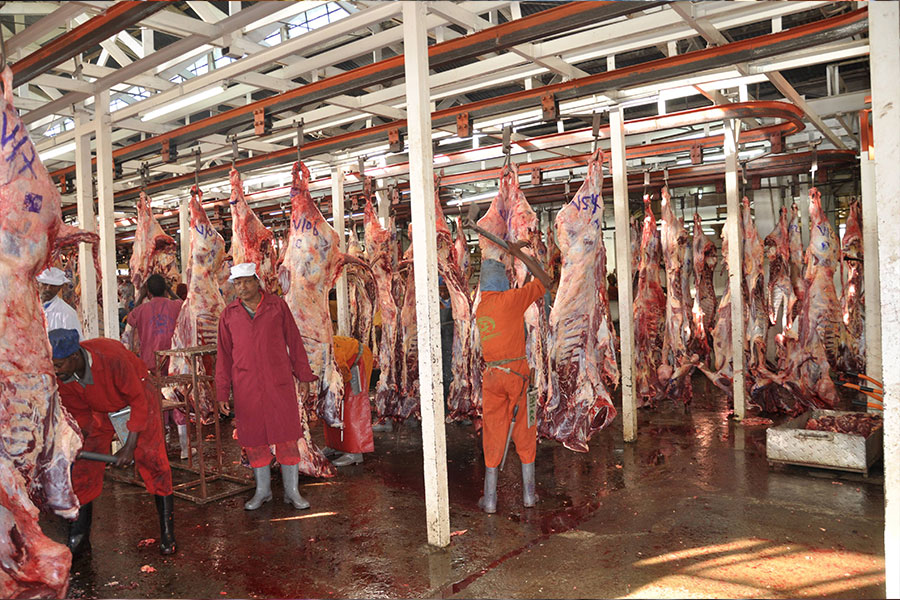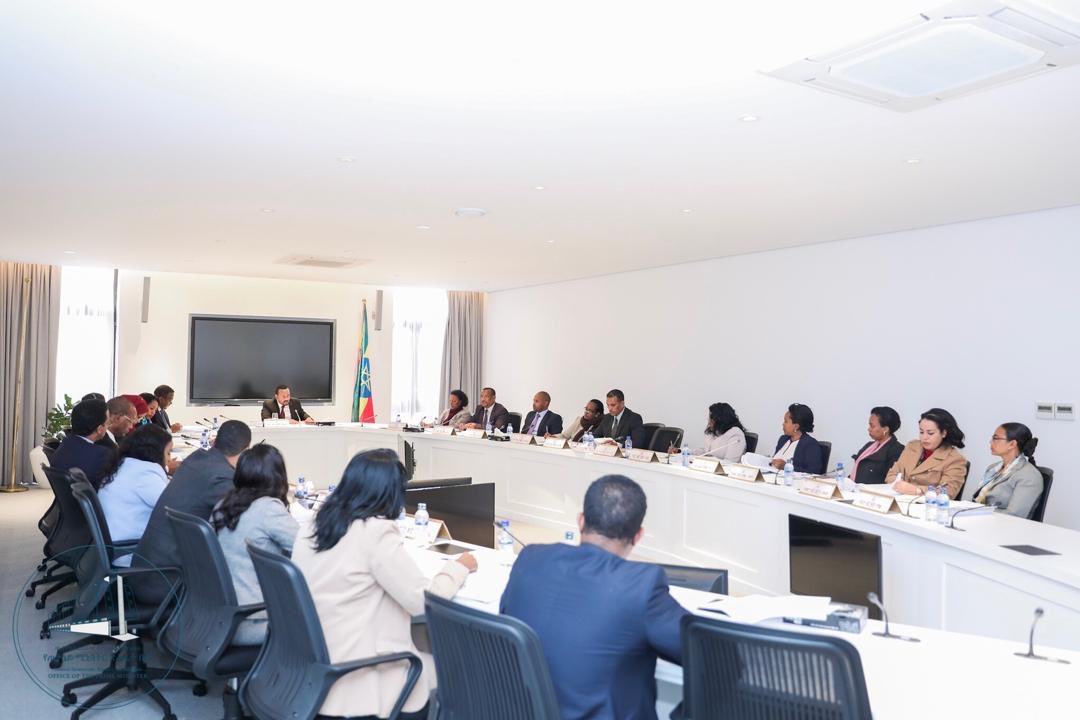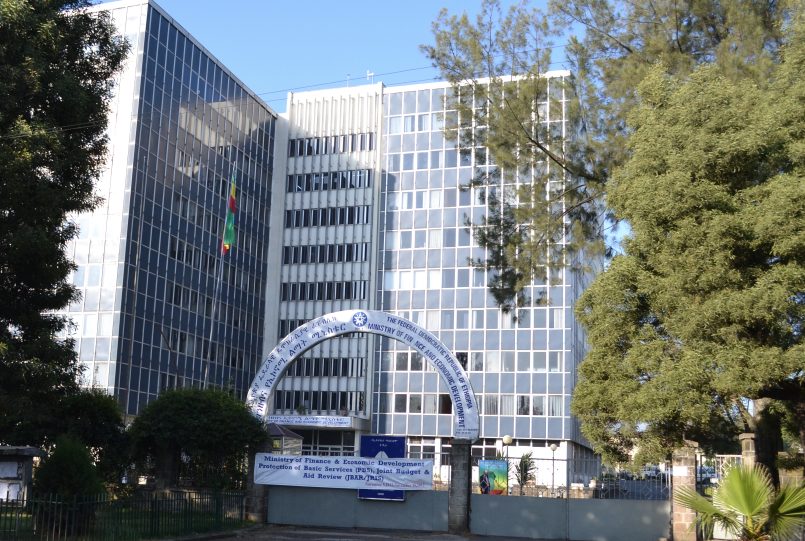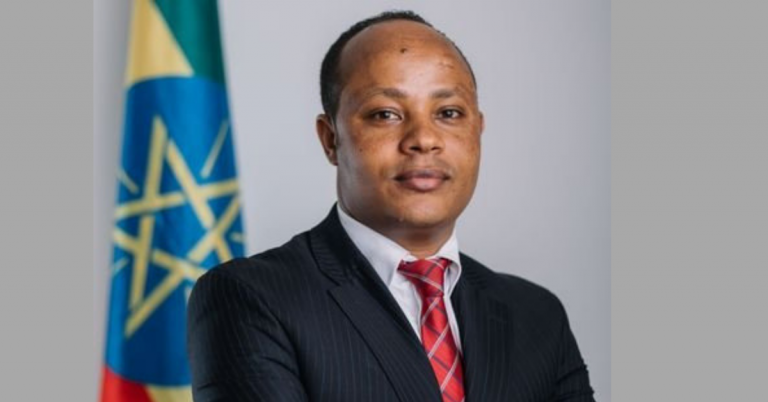
Fortune News | May 02,2020
Jun 11 , 2022.
The stereotype many people have of parliamentarians is as clueless seat fillers who exist to rubber stamp legislative bills drafted by the powerful executive body of government. To defeat the stereotype, lawmakers have yet to show as much autonomy of thought as their constituents might have liked to see, partly because almost all of them are part of a supermajority in parliament. But the questions they raised as Ahmed Shide, Finance minister, tabled the budget bill was surprisingly perceptive. Federal legislators seemed to realise the significance of the session and the peculiarities of the budget the Council of Ministers proposed two weeks ago.
Parliamentarians set their eyes on lowered capital spending, a trend consistent since 2017. They were on point to emphasise that this would affect development projects for their constituencies, especially when so much public infrastructure has been damaged due to civil war in the north and insurgency in the south-west. They also zeroed in on the runaway inflation (year-on-year food inflation reaching 46pc in April) and queried whether regional budget subsidies are adequate given the administration's priorities. They also asked how budget needs could be determined reasonably fair when the last census was conducted a decade and a half ago.
Legislators ought to bear the same energy and informed opinion when the Prime Minister will eventually defend the budget before parliament. His administration spends tax revenues collected from the hard-earned incomes of citizens across the country and debt that will be paid back from public coffers. Whether or not the spending proposal is “right,” it is incumbent upon the administration to justify it.
This budget bill is unique from its predecessors over the last decades – at least since EPRDF’s developmental economic model came into its own - and thus more deserving of deep probes. The budget bill's agenda demands a closer look, proper framing and sufficient debate.
The bill proposes 786.6 billion Br, 17pc higher than last year's. It sounds like a lot of money. It is, in Birr terms at least. A decade ago, the parliament passed a spending bill almost a seventh of the current, which was a record at the time.
Ethiopia’s currency is not what it used to be, though. Depreciation has left it a shadow of its former self. The proposed bill is about 15.13 billion dollars at current official exchange rates, which is lower than last year’s overall federal budget. Parliament initially had passed 12.85 billion dollars, and then a supplementary budget of almost 2.5 billion dollars. If the administration is disciplined enough and does not ask for an additional budget in the middle of the next fiscal year, as it customarily does, the federal budget would have contracted, especially as a percentage of GDP.
This is not normal. The details are even less so. The most glaring aspect of the bill is capital expenditure, one of the four components of the budget. Seven months into the civil war last year, the initial capital spending proposal, which was long-term asset creation, was four percent higher than recurrent spending (mainly administrative and debt servicing). This year, the former is lower than recurrent expenditures by a whopping 16 percentage points. The government is spending less on investments for a return.
Such a budget should be scrutinised, not rubber stamped. Priorities should be justified, budget cuts explained, and allocations accounted for before legislators vote on the bill.
There are a few things to focus on and hold the administration's officials accountable during economic performance evaluation. The obvious one is why capital spending is low as a share of the overall budget, in contrast to the previous trend. This impacts infrastructure financing and expanding the economy. Legislators should consider what this means for their constituencies in a business opportunities, employment and investments in public infrastructure.
There are certain caveats here. Whenever there is a need for budget cuts, it usually comes from capital expenditures. Record prices in essential items such as fuel, edible oil and fertiliser contribute to this, which will bloat recurrent expenditure for the foreseeable future. Legislators should pay attention to how much of this could be reduced by lifting fuel subsidies and why it is not showing in the budget bill. But it is not just essential items that have led to recurrent spending overshadowing capital investments. It is defence spending. It consumed almost three-quarters of the supplementary budget passed last year. In the budget bill up for a vote now, 84 billion Br has been set aside for defence, almost 15pc of combined spending on capital and recurrent expenditures and behind only debt servicing.
Parliamentarians should connect the economic costs of war to a deterioration of investments in public health, education and public infrastructure as reflected in the bill and how it could be addressed. It is not every year that more goes to defence than to roads, hospitals and colleges.
The revenue side of the budget bill and its macroeconomic assumptions, which are opposite sides of the same coin, are no less urgent. If the administration believes that macroeconomic conditions are improving, revenues will likely increase and justify the bloated aspects of the budget. As presented by Minister Ahmed when he tabled the bill, the assumptions must be peeked by legislators. It takes a pathological optimist to agree with the Administration's assumption that the GDP will grow by even half of the 9.2pc its policy wonks projected for next year.
There cannot be much to be said about the annual average inflation forecast of 11.9pc. Old habits die hard. It ought to be a legacy Prosperitians inherited from the EPRDFites in pinging hope on something positive but knowing well that it will not happen.
The federal government revenues are projected at 477.8 billion Br, with 400 billion Br coming from tax mobilization. What warrants such optimism ought to be explained to legislators. After all, these are challenging times of pandemic, inflation, war, and disruptive political instability.
After all, has not the federal government lost 40 billion Br in tax revenues this year due to the consequences of the war?
Minister Ahmed insisted that one of the contributing factors for growth next fiscal year will be an end to the war. Nothing is more reassuring than a senior minister in the cabinet and a member of the national security council pledging to end a war.
However, are there contingencies if it does not end? What of inflation? At the very least, the Russia-Ukraine war would likely continue for years, holding up the cost of essential items. How can inflation be cut into thirds under such an environment? What of the tax revenues, when the current fiscal year only saw an estimated 294 billion Br collected? If capital spending drops, does this not more likely dampen economic growth, making assumptions on GDP growth and tax revenues unlikely?
The assumption behind revenues and macroeconomic conditions should not slide because it will determine the level of deficit financing. For every Birr that tax revenues and grants cannot cover, public debt (most likely Treasury bills) will have to expand further, or central bank advances would have to increase. In the current fiscal year, the administration overshot its budget by 122 billion Br, 21pc of the initial budget passed. Such incontinence should not be allowed for another year.
Legislators need to get the Prime Minister to agree on record to a debt ceiling that will not be breached in a supplementary budget in the middle of the year. The impacts of the civil war, COVID-19 and the global food and energy crisis should have already been priced into the budget bill. Short of an extraordinary shock that does not already exist, the deficit in the budget bill that parliamentarians eventually pass should not be exceeded. There is little value to austerity if it is bloated through ritual budget requests annually.
PUBLISHED ON
Jun 11,2022 [ VOL
23 , NO
1154]

Fortune News | May 02,2020

Editorial | Mar 12,2022

Fortune News | Apr 22,2022

Fortune News | Jul 27,2019

Radar | Apr 13,2025

Fortune News | Sep 22,2024

Fortune News | Aug 03,2019

Addis Fortune | May 12,2024

Fortune News | Oct 12,2019

Fortune News | Jul 06,2019

My Opinion | 131974 Views | Aug 14,2021

My Opinion | 128363 Views | Aug 21,2021

My Opinion | 126301 Views | Sep 10,2021

My Opinion | 123917 Views | Aug 07,2021

Dec 22 , 2024 . By TIZITA SHEWAFERAW
Charged with transforming colossal state-owned enterprises into modern and competitiv...

Aug 18 , 2024 . By AKSAH ITALO
Although predictable Yonas Zerihun's job in the ride-hailing service is not immune to...

Jul 28 , 2024 . By TIZITA SHEWAFERAW
Unhabitual, perhaps too many, Samuel Gebreyohannes, 38, used to occasionally enjoy a couple of beers at breakfast. However, he recently swit...

Jul 13 , 2024 . By AKSAH ITALO
Investors who rely on tractors, trucks, and field vehicles for commuting, transporting commodities, and f...

Jul 6 , 2025 . By BEZAWIT HULUAGER
The federal legislature gave Prime Minister Abiy Ahmed (PhD) what he wanted: a 1.9 tr...

Jul 6 , 2025 . By YITBAREK GETACHEW
In a city rising skyward at breakneck speed, a reckoning has arrived. Authorities in...

Jul 6 , 2025 . By NAHOM AYELE
A landmark directive from the Ministry of Finance signals a paradigm shift in the cou...

Jul 6 , 2025 . By NAHOM AYELE
Awash Bank has announced plans to establish a dedicated investment banking subsidiary...